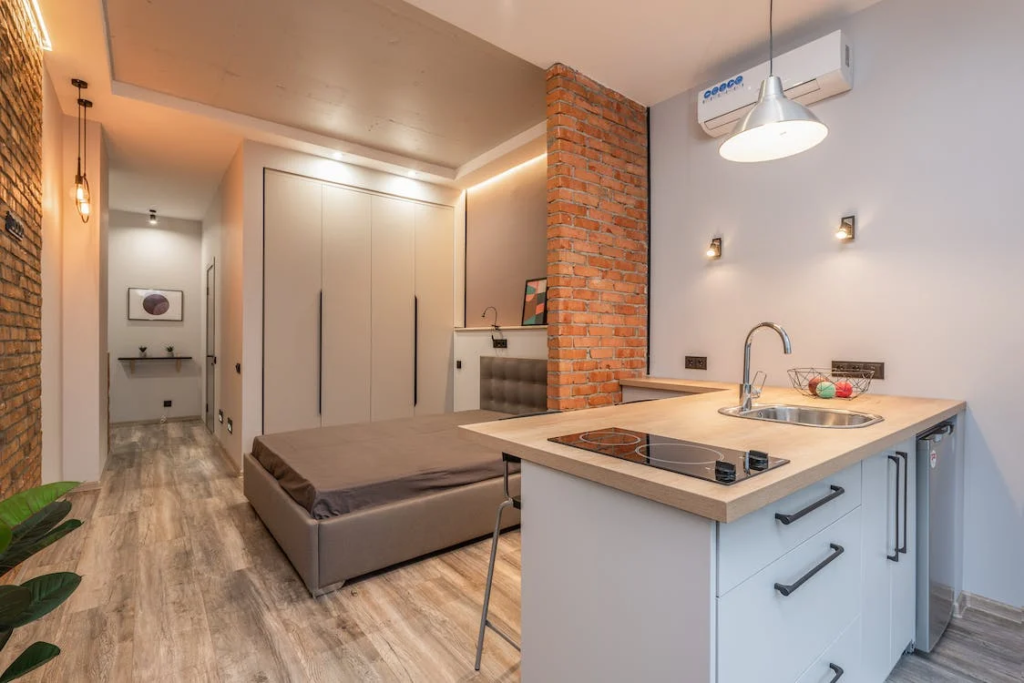The history of German kitchens began with the Frankfurt kitchen, firstThe 4 best German kitchen brands released in 1926.
Designed with a focus on efficiency, this revolutionary kitchen was the start of a long-lasting legacy. Every element in a German kitchen serves a practical purpose, from ergonomically designed worktops to cleverly placed cabinets that maximise space.
These kitchens use a function-first approach to make daily tasks, like cooking or washing dishes, more manageable. Another hallmark of German kitchens is quality: their high-grade materials are designed to last!
So, why not learn more about the best 5 German kitchen brands available today?
Leicht
A celebrated name in the world of German kitchen design, Leicht’s journey began in 1928. Brothers Alois and Josef Leicht founded a workshop in Schwäbisch Gmünd, Southern Germany, initially for manufacturing kitchen dressers.
The company later evolved into a major player in the kitchen industry, all while maintaining its family-run roots.
Leicht kitchens are constructed with precision engineering, from their robust carcase frames to the smooth, self-closing drawers and pull-out systems that operate with minimal noise.
But Leicht Kitchens’ pride and joy is their reliability. Leicht German kitchens feature elements like anti-tip systems and high loading capacities for drawers and pull-outs, meaning buyers get the most for their money.
Bulthaup
Prestigious German kitchen brand Bulthaup is all about marrying craftsmanship with state-of-the-art designs.
Founded in 1949 by Martin Bulthaup in Bodenkirchen, the company has grown from a local business into a global leader in the luxury kitchen market.
Its evolution continued under the guidance of Martin’s son, Gerd Bulthaup, who infused the brand with a strong design philosophy rooted in the Bauhaus tradition: form following function.
The brand offers three main product lines: b1, b2, and b3, and each has a core principle of simplicity and precision. The b1 series focuses on the essentials, with clean lines and a straightforward layout.
The b2 series introduces the concept of a “kitchen workshop,” with modular components that can be arranged according to the user’s needs. The world-renowned b3 line focuses on integrating kitchen functions into the living area.
Schuller
Schüller was created in 1966 by Otto Schüller in Herrieden, Bavaria.
What began as a small workshop has since grown into one of Germany’s top three kitchen manufacturers. Schüller produces approximately 165,000 kitchens annually and exports to 35 countries worldwide!
The company is known for its modular designs, intelligent storage solutions, and ergonomic designs. In keeping with the tenets of German kitchen design, it wants to make everyday tasks efficient and enjoyable.
Whether it’s a compact city flat or a spacious family home, Schüller wants to make homes more functional without compromising the architecture and aesthetics of German kitchens.
Another core value of Schüller is their commitment to sustainability. They incorporate eco-friendly materials and practices into their production processes, all to make sure Schüller kitchens are environmentally responsible.
Kutchenhaus
Legendary brand Kutchenhaus emerged from a collaboration between UK kitchen professionals and the renowned German kitchen manufacturer Nobilia.
Their partnership, first founded in 2004, has allowed Kutchenhaus to leverage over 70 years of expertise in kitchen manufacturing.
The brand quickly made its mark with its first showroom in Urmston, Manchester. Since then, Kutchenhaushas has embraced a franchise model, which led to its rapid expansion worldwide.
By emphasising customer service and guiding clients through the kitchen-building process, Kutchenhaus has built a solid reputation in the German kitchen design industry.
Kutchenhaus kitchens feature a wealth of technologies, like soft-close drawers, clever corner units, and advanced hinges, all of which are designed to make your home more usable.
Best of all, Kutchenhaus lets you bring your kitchen vision to life. They’re well-known for their customisation, offering customers a wide array of finishes, colours, and handle types.
Kutchenhaus’ commitment to personalisation is a core aspect of the brand. No two of their kitchens are the same,

